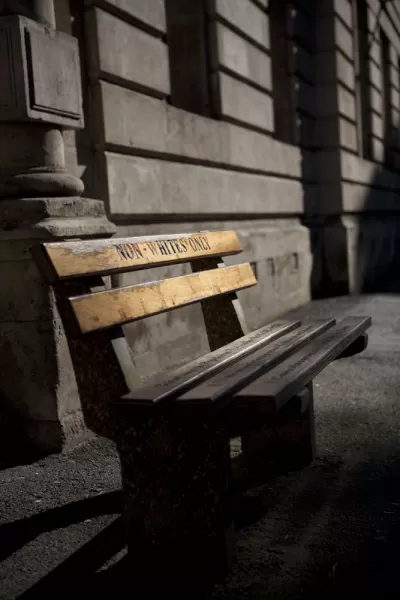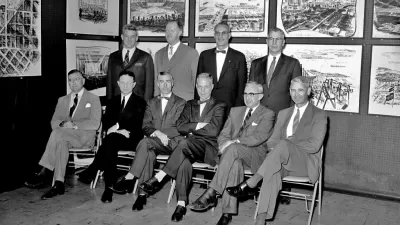Redlining has been around for a long time, but across the country, local, state, and federal agencies are filing complaints against banks and other corporations for creative and subtle new forms of discrimination.

No longer are redlining cases limited to the more traditional forms of geographic discrimination, such as denying housing loans or refusing to deliver food. Brentin Mock points to a series of recent cases that "show that not only is redlining alive today, but that it’s also evolved in many cases into racist practices that aren’t as detectable as they were during Jim Crow."
A recent settlement between the federal government and the Hudson City Bank is the largest of its kind in history. The Justice Department determined that the bank was engaged in redlining by its failure to open branches in and market to minority neighborhoods.
"The bank didn't accept mortgage applications at all of its branches, requiring some borrowers to travel to locations that happened to be farther away and in overwhelmingly white communities. The bank also offered a home improvement loan program for low-to-moderate income families, but the advertising for it specified that closings could only occur at one branch. It was in Fairfield, Conn., where the median income is $117,000 and the population is 92 percent white," writes Emily Badger.
Evans Bank in Buffalo recently settled with the state of New York after it was found that the regional bank had omitted the predominantly black east side from it's lending maps. "Rival banks, the authorities said, lent far more generously, suggesting that Evans's pattern of lending did not arise from an absence of willing borrowers," write Jessica Silver-Greenberg and Michael Corkery.
A less explicit but perhaps equally red flag for redlining is a new bank app that could soon be on the market, which would allow lenders to assess a loan applicants creditworthiness based on his/her stock of Facebook friends. "Still, if this ends up not flying, there’s no reason to think that banks won’t find some other application to filter out undesirable borrowers," writes Mock. "After all, the history of discrimination in the U.S. is one of metamorphosis."
FULL STORY: Redlining is Alive and Well—and Evolving

Planetizen Federal Action Tracker
A weekly monitor of how Trump’s orders and actions are impacting planners and planning in America.

Restaurant Patios Were a Pandemic Win — Why Were They so Hard to Keep?
Social distancing requirements and changes in travel patterns prompted cities to pilot new uses for street and sidewalk space. Then it got complicated.

Map: Where Senate Republicans Want to Sell Your Public Lands
For public land advocates, the Senate Republicans’ proposal to sell millions of acres of public land in the West is “the biggest fight of their careers.”

Maui's Vacation Rental Debate Turns Ugly
Verbal attacks, misinformation campaigns and fistfights plague a high-stakes debate to convert thousands of vacation rentals into long-term housing.

San Francisco Suspends Traffic Calming Amidst Record Deaths
Citing “a challenging fiscal landscape,” the city will cease the program on the heels of 42 traffic deaths, including 24 pedestrians.

California Homeless Arrests, Citations Spike After Ruling
An investigation reveals that anti-homeless actions increased up to 500% after Grants Pass v. Johnson — even in cities claiming no policy change.
Urban Design for Planners 1: Software Tools
This six-course series explores essential urban design concepts using open source software and equips planners with the tools they need to participate fully in the urban design process.
Planning for Universal Design
Learn the tools for implementing Universal Design in planning regulations.
Heyer Gruel & Associates PA
JM Goldson LLC
Custer County Colorado
City of Camden Redevelopment Agency
City of Astoria
Transportation Research & Education Center (TREC) at Portland State University
Camden Redevelopment Agency
City of Claremont
Municipality of Princeton (NJ)





























